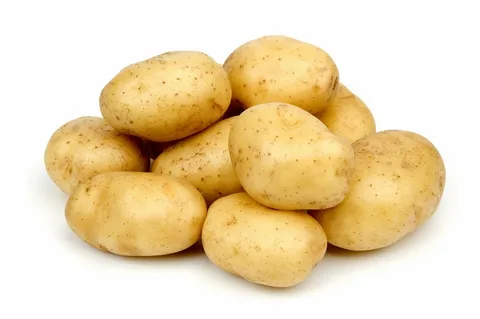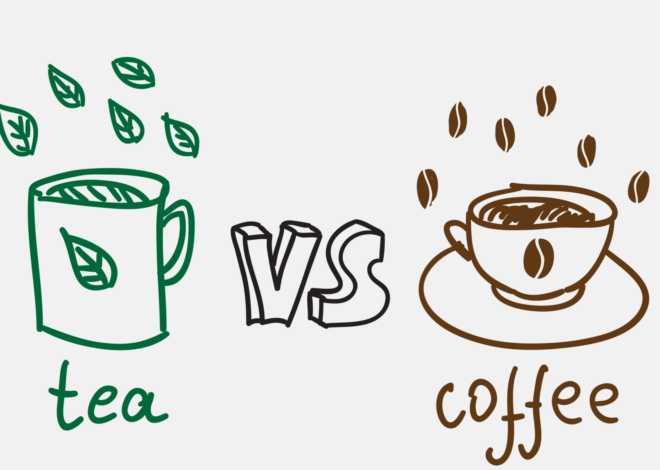
Potatoes: Healthy or Unhealthy?
Introduction
Potatoes are one of the world’s most widely consumed and versatile vegetables, cherished for their comfortingly starchy texture and ability to be prepared in myriad ways. However, their reputation in the realm of health and nutrition is often debated. In this comprehensive guide, we’ll delve into the nutritional profile of potatoes, explore their potential health benefits and drawbacks, and address common questions surrounding their place in a balanced diet.
Nutritional Profile of Potatoes
Macronutrient Composition
Potatoes are primarily composed of carbohydrates, with a medium-sized potato containing about 37 grams of carbs. They also provide a modest amount of protein, typically around 4 grams per medium potato, and minimal fat.
Micronutrient Content
Potatoes are rich in several essential vitamins and minerals, including vitamin C, potassium, vitamin B6, and folate. They also contain smaller amounts of other micronutrients like magnesium, iron, and vitamin K.
Health Benefits of Potatoes
Rich Source of Nutrients
Potatoes are a nutrient-dense food, providing a range of vitamins, minerals, and antioxidants that support overall health and well-being. Vitamin C, for example, plays a crucial role in immune function and collagen production, while potassium helps regulate blood pressure and muscle function.
Dietary Fiber Content
Potatoes contain dietary fiber, particularly in their skin, which supports digestive health and may help regulate bowel movements. Fiber also contributes to feelings of fullness and can aid in weight management by promoting satiety.
Heart Health
Potatoes are naturally sodium-free and low in saturated fat, making them a heart-healthy food choice. The potassium content of potatoes may also help lower blood pressure and reduce the risk of cardiovascular disease when consumed as part of a balanced diet.
Considerations and Potential Drawbacks
High Glycemic Index
Potatoes have a relatively high glycemic index (GI), meaning they can cause a rapid increase in blood sugar levels when consumed. This may be of concern for individuals with diabetes or those trying to manage blood sugar levels.
Calorie Density
While potatoes are nutrient-dense, they are also calorie-dense, especially when prepared in ways that add significant amounts of fat or calories, such as frying or loading with butter and cheese. Overconsumption of high-calorie potato dishes may contribute to weight gain if not balanced with other nutrient-rich foods.
Potential Acrylamide Formation
When potatoes are cooked at high temperatures, such as frying or baking at high heat, they may form acrylamide, a potentially harmful compound that has been associated with an increased risk of cancer in animal studies. However, the significance of this risk in humans is still debated, and more research is needed.
FAQs (Frequently Asked Questions)
Are Potatoes Fattening?
Potatoes themselves are not inherently fattening, as they are relatively low in fat and provide important nutrients. However, the way potatoes are prepared and consumed can significantly impact their calorie and fat content. Opting for healthier cooking methods like boiling, baking, or steaming, and limiting added fats and toppings can help keep potato dishes lower in calories and fat.
Are Sweet Potatoes Healthier Than Regular Potatoes?
Both sweet potatoes and regular potatoes offer unique nutritional benefits. Sweet potatoes are higher in beta-carotene and vitamin A, while regular potatoes are higher in vitamin C and potassium. Both can be part of a healthy diet when prepared in a balanced and nutritious manner.
Can Potatoes Cause Weight Gain?
Potatoes themselves are not likely to cause weight gain when consumed in moderation as part of a balanced diet. However, consuming large portions of high-calorie potato dishes, such as fries or loaded baked potatoes, on a regular basis may contribute to weight gain if not offset by other healthy dietary choices and physical activity.
Are Potato Skins Healthy?
Potato skins are rich in dietary fiber, vitamins, minerals, and antioxidants, making them a nutritious part of the potato. Eating the skin provides additional health benefits and can enhance the overall nutritional value of the potato.
Can Potatoes Be Part of a Low-Carb Diet?
While potatoes are relatively high in carbohydrates, they can still be included in a low-carb diet in moderation, especially for individuals who are physically active and metabolically healthy. Opting for smaller portions and choosing lower-GI potato varieties like sweet potatoes or consuming potatoes with skin can help minimize their impact on blood sugar levels.
Conclusion
Potatoes are a versatile and nutritious vegetable that can be part of a healthy diet when consumed in moderation and prepared in a balanced manner. They provide essential nutrients, dietary fiber, and health-promoting antioxidants while offering various culinary possibilities. By understanding their nutritional profile, health benefits, and potential considerations, individuals can enjoy potatoes as part of a well-rounded diet that supports overall health and well-being. As with any food, moderation and mindful consumption are key to maximizing the benefits of potatoes while minimizing potential drawbacks.
- The Beauty Guide: London, UK - April 24, 2024
- Potatoes: Healthy or Unhealthy? - April 24, 2024
- Slippery Elm Bark: 4 Surprising Health Benefits - April 24, 2024



